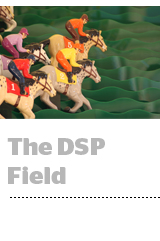 For the independent demand-side platform (DSP) market, it is the best of times, it is the worst of times.
For the independent demand-side platform (DSP) market, it is the best of times, it is the worst of times.
On the one hand, it’s unlikely any new scaled DSPs will enter the market. The costs to build a competitive platform – nine digits off the bat and another eight digits per year in operational costs – combined with supply-side trends like header bidding that disadvantage smaller companies leave incumbents unassailable by startups.
On the other hand, scaled, independent DSPs face mounting cost hurdles of their own and many are losing market share, or have been sold to non-independent media owners.
“It’s a challenging business model for new stand-alone DSP entrants to be just considering getting into,” said Julian Baring, Adform’s general manager for North America. A DSP often fronts the costs on inventory until the agency is reimbursed by the brand, “which requires a meaningful float and then only a percentage of that float is realized as revenue.”
The cost of maintaining platform upkeep alone can be prohibitive without sufficient scale, Baring said.
Google’s DoubleClick Bid Manager (DBM) is the runaway leader in the category and Amazon has surged into a comfortable second place on the back of its must-have status for many brands. Trailing those tech giants are seven or eight closely packed DSPs, said Kevin Mannion, CSO of the advertising market research firm Advertiser Perceptions.
Mannion compared the independent DSP market to a horse race, where a large field entered and a handful are now approaching a finish line where three or four will end up “in the money.”
The field is clearing for independent DSPs in multiple ways. Supply-side companies like Tremor Video and Rubicon Project have abandoned buy-side initiatives, and as competitors like Turn and Oath (née AOL and Yahoo) become telco properties, they cede their positioning as independent platforms.
Even if a buyer works with DBM, Amazon and Oath, “there’s going to be a seat for an independent and objective DSP,” Baring said.
And there are post-acquisition disadvantages for non-telco DSP buys, such as Rocket Fuel’s recent roll-up into private equity-backed Sizmek or TubeMogul’s sale to Adobe last year.
“While those companies are arguably distracted with integrations and transitions, we do what we’ve always done and can talk about being objective,” said The Trade Desk’s COO, Rob Perdue.
Last week, The Trade Desk upped its earnings forecast for the second consecutive quarter, attributing unexpected growth to consolidation among DSPs.
An acquisition doesn’t remove a DSP from the market, but it can disrupt its inertia with some clients.
A sale can “raise questions about the transition period,” Gartner research VP Martin Kihn told AdExchanger in an email.
“It’s not always a question of defecting since marketers might be using multiple DSPs,” Kihn said. “It’s a question of the weight and spend.”
Perdue said agencies have gone from working with four to six buying platforms to closer to three now. It’s a change in agency strategy that’s reflected in the DSP market consolidation.
Many of the companies being bought out of the market are exiting because they’re losing the fight to hold onto agency seats and to win higher percentages of media from existing clients. Rocket Fuel’s public disclosures show Sizmek revising down its initial bid range from $4 to $5.25 per share to a closing price of $2.60 three months later due to “revenue and profitability performance.”
But every independent DSP that gets snapped up makes those remaining more attractive targets.
“We get in-bound acquisition interest two to three times per month from an incredibly diverse array of suitors spanning industries far beyond digital advertising,” said DataXu CEO Michael Baker.
Aside from the walled garden platforms, The Trade Desk and MediaMath seem to be the DSPs with momentum in the market, according to Kihn.
“We think this M&A is a healthy trend for the industry,” Perdue said. “Every one of these that goes away makes it easier for advertisers and agencies to understand who’s in it for them.”
This post was syndicated from Ad Exchanger.

More Stories
Meta’s Threads Begins Global Ad Rollout Within Its Feed
Adtech Firm Criteo Is Pitching Hundreds of Retailers on a New Video Ad
2degrees gets loud about NOtifications